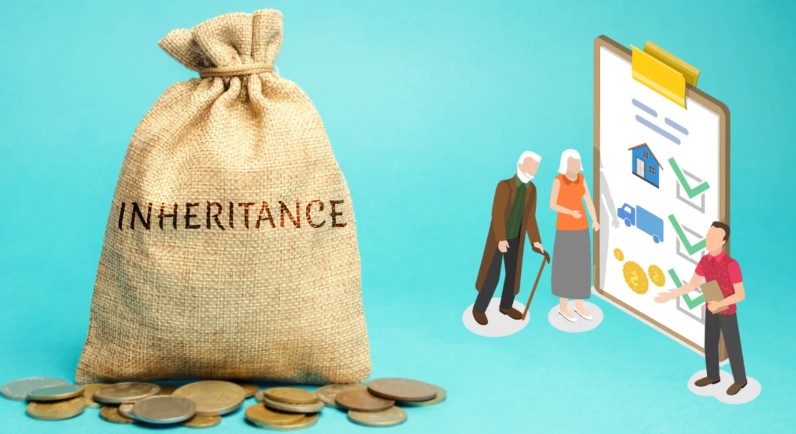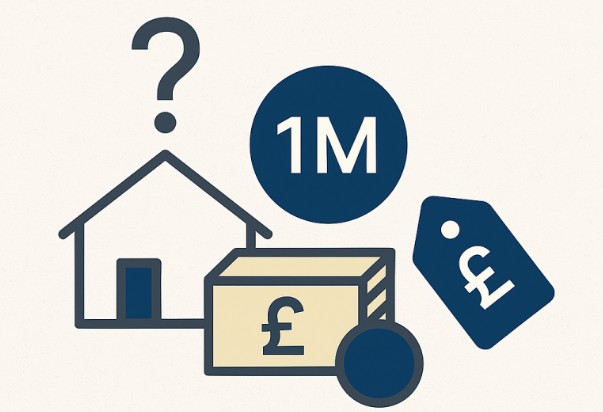A Comprehensive Guide for UK Households in 2025
If you’re based in the UK and wondering “how much inheritance tax will I pay on £1 million?”, you’re certainly not alone. With the continuous rise in property prices, more middle-class families are now facing an inheritance tax (IHT) bill once only associated with the ultra-wealthy.
As a result, understanding how IHT works—and how much your beneficiaries might need to pay—is becoming a critical part of long-term financial planning for UK households. In this comprehensive guide, we break down everything you need to know: what inheritance tax is, how it’s calculated on a £1 million estate, and what legal measures you can take to reduce or avoid it.
What Is Inheritance Tax?
Inheritance Tax is a government levy on the estate of someone who has died. The estate includes all property, cash, savings, shares, vehicles, life insurance payouts, jewellery, and other valuable possessions owned by the deceased.
The tax is only applied after any outstanding debts, funeral expenses, and liabilities have been deducted. In the UK, the standard rate of IHT is 40% on the portion of the estate that exceeds the tax-free allowance.
Many people are shocked to discover that, without careful planning, a significant portion of their estate could be lost to tax, potentially affecting the wealth passed on to children and grandchildren.
Current Inheritance Tax Thresholds (2025)

There are two main tax-free allowances you need to understand:
1. Nil-Rate Band (NRB)
This is the standard inheritance tax-free allowance.
- As of 2025, the NRB is £325,000.
- This applies to everyone, regardless of their marital status or whether they own property.
2. Residence Nil-Rate Band (RNRB)
This is an additional allowance available when your main residence is passed to direct descendants.
- The RNRB is currently £175,000 per person.
- Direct descendants include children, stepchildren, adopted children, and grandchildren.
Together, these allowances mean that a single person can pass on up to £500,000 tax-free, while a married couple or civil partnership can potentially pass on £1 million tax-free.
Inheritance Tax Breakdown on a £1 Million Estate
Here are some practical scenarios showing how inheritance tax is calculated on a £1 million estate.
Scenario 1: Single Person with No Home or No Children
- Estate value: £1,000,000
- Applicable tax-free threshold (NRB only): £325,000
- Taxable estate: £675,000
- Inheritance Tax at 40%: £270,000
- Net estate left to heirs: £730,000
In this case, the individual doesn’t qualify for the RNRB, either because they didn’t own a qualifying property or didn’t leave it to direct descendants.
Scenario 2: Single Person, Home Left to Children
- Estate value: £1,000,000
- NRB: £325,000
- RNRB: £175,000
- Total tax-free allowance: £500,000
- Taxable estate: £500,000
- Inheritance Tax at 40%: £200,000
- Net estate to heirs: £800,000
By qualifying for the RNRB, the estate saves £70,000 in tax compared to the previous example.
Scenario 3: Married Couple, Combined Estate, Home Passed to Children
- Combined estate value: £1,000,000
- Combined NRB: £650,000
- Combined RNRB: £350,000
- Total tax-free allowance: £1,000,000
- Taxable estate: £0
- Inheritance Tax due: £0
In this ideal scenario, no IHT is due at all, as the couple can fully utilise both the NRB and RNRB.
Key Considerations That Affect IHT Liability
Property Ownership
If your estate includes a home, it’s crucial to know who inherits it. The RNRB only applies if the home is passed to direct descendants. If it’s left to nieces, nephews, or friends, you lose the RNRB entirely.
Unmarried Couples
Unmarried couples cannot transfer unused allowances between partners. This means two unmarried people with a joint estate of £1 million may face significant IHT, even if they’ve lived together for decades.
Previous Gifting
Lifetime gifts made in the seven years before death may be included in your taxable estate, reducing your allowances and potentially triggering additional tax.
Reducing Your Inheritance Tax Bill: Legitimate Strategies

While you can’t avoid IHT by simply wishing it away, there are several legal and strategic ways to reduce or mitigate your exposure.
1. Make Use of Lifetime Gifts
Gifting during your lifetime can be an effective way to reduce the size of your estate. These are called Potentially Exempt Transfers (PETs).
If you survive seven years after making a gift, it becomes fully exempt from Inheritance Tax. If you die within seven years, a taper relief applies after the third year, reducing the tax rate gradually.
2. Utilise Your Annual Gift Allowance
Each individual can gift:
- Up to £3,000 per year tax-free
- £250 per person in small gifts
- £5,000 to a child as a wedding gift
Unused gift allowances can be rolled over for one year, giving you a potential £6,000 allowance.
3. Consider Putting Assets into a Trust
Assets placed in certain types of trusts may not be considered part of your estate for IHT purposes, depending on the structure.
However, trusts are complex and subject to various rules:
- Bare trusts are treated as gifts
- Discretionary trusts may incur entry, periodic, and exit charges
Professional legal and tax advice is essential before using trusts for tax planning.
4. Leave a Portion to Charity
Leaving 10% or more of your net estate to charity reduces the rate of IHT from 40% to 36% on the remaining estate. It also allows you to support causes you care about.
5. Take Out a Life Insurance Policy

A life insurance policy held in trust can cover your inheritance tax bill. The payout from such a policy doesn’t form part of your estate, and can help your heirs pay the tax without selling property or assets.
Who Pays Inheritance Tax and When?
The executor or administrator of your estate is legally responsible for paying the IHT bill to HMRC. The tax must generally be paid within six months of the end of the month in which death occurs. If not, interest may be charged.
For property or other non-liquid assets, HMRC allows IHT to be paid in installments over 10 years, although interest still accrues.
Beneficiaries may be personally liable for paying IHT on lifetime gifts if the deceased dies within seven years and the estate cannot cover the bill.
Common Misconceptions About Inheritance Tax
“My Estate Isn’t Big Enough to Worry About It”
If you own a property in London or the South East, you may already be close to the IHT threshold. With average property prices exceeding £500,000 in many areas, more families fall into the IHT bracket every year.
“If I Write a Will, I Can Avoid IHT”
While a will is essential for deciding how your estate is divided, it does not exempt you from Inheritance Tax. Only proper planning and use of allowances can reduce your tax bill.
Why Inheritance Tax Planning Matters More Than Ever
The Inheritance Tax threshold has been frozen since 2009, while average house prices have increased dramatically. This has created a phenomenon known as fiscal drag, pulling more estates into the IHT net each year without any changes to the law.
Additionally, as UK public finances come under pressure, there is increasing political debate about reforming or tightening inheritance tax rules. That makes proactive planning not just advisable but essential.
Final Thoughts
So, how much inheritance tax will you pay on £1 million? The answer depends entirely on how your estate is structured, who you leave it to, and what steps you’ve taken in advance. For individuals without children or proper planning, the tax bill could be as high as £270,000. For couples with children and a home, that same £1 million could be passed on completely tax-free.
Inheritance Tax is one of the few taxes that can be significantly reduced—or even eliminated—with early and careful planning. Don’t wait until it’s too late. Consider speaking with a solicitor or tax advisor who specialises in estate planning and make sure your wealth goes where you intend—not to the taxman.

Leave a Reply